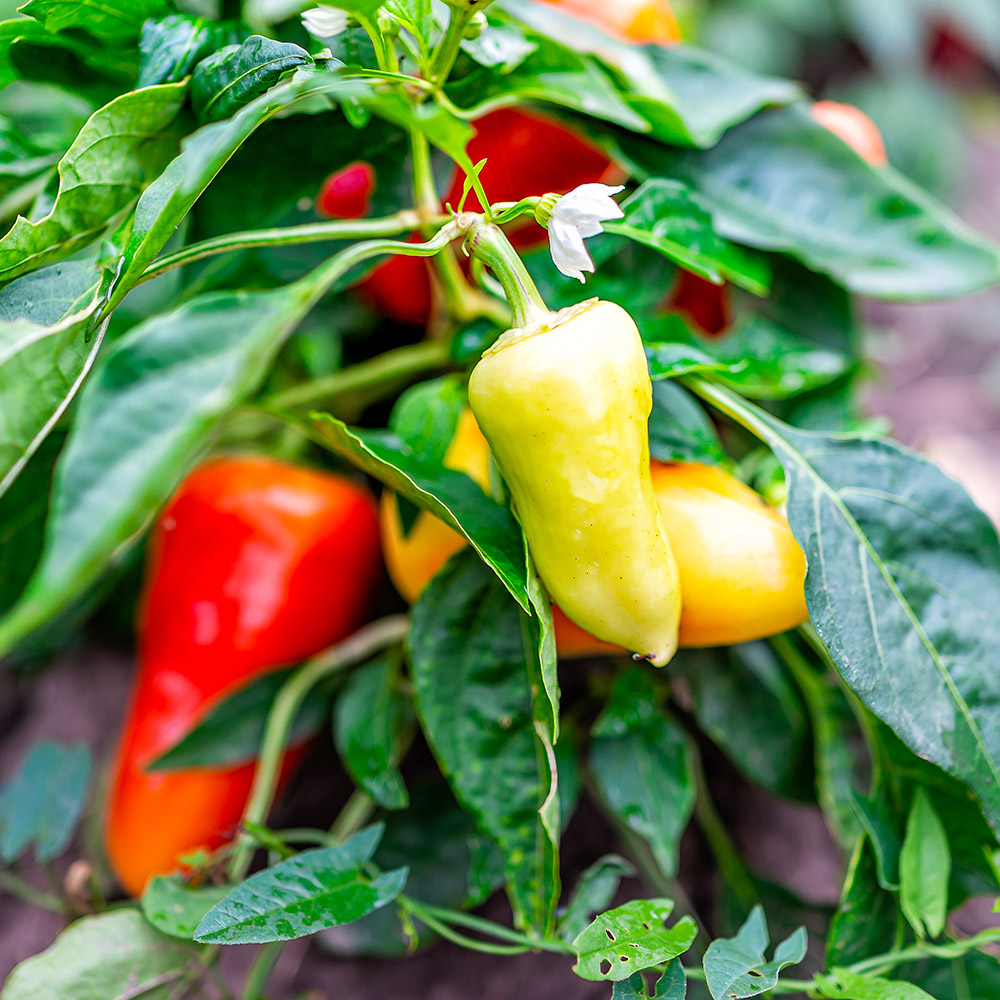Premier Fertilizers for Peppers: Improve Your Harvest Top Quality
Premier Fertilizers for Peppers: Improve Your Harvest Top Quality
Blog Article
Organic Vs. Synthetic Fertilizers: Which Is Best for Nurturing Healthy Pepper Plants?
In the realm of supporting healthy and balanced pepper plants, the selection between organic and artificial fertilizers stands as an essential choice with far-ranging effects. While both options objective to supply crucial nutrients to support plant growth, the subtleties of their impact on the soil, plant health and wellness, and the environment spark a debate that mirrors throughout the horticulture area. Comprehending the distinct benefits and possible challenges of each fertilizer type is important for pepper cultivators seeking to optimize their yields while keeping an eco-conscious and sustainable method.
Benefits of Organic Fertilizers
Organic fertilizers supply an environmentally-friendly and sustainable approach to beneficial pepper plants, giving essential nutrients without the use of synthetic chemicals. These natural plant foods are stemmed from natural sources such as compost, manure, bone meal, and seaweed, advertising dirt wellness and biodiversity. Unlike artificial fertilizers, organic alternatives launch nutrients gradually, ensuring a steady and well balanced supply for pepper plants to thrive.
One substantial advantage of natural fertilizers is their capability to enhance soil structure and water retention. By enhancing dirt wellness, natural fertilizers promote helpful microbial task, which assists in nutrient uptake by pepper plants. Furthermore, natural fertilizers minimize the threat of chemical run-off, safeguarding water resources from pollution and guarding the environment.
Additionally, natural plant foods add to long-term dirt fertility by advertising the development of useful dirt microorganisms. These microorganisms help break down natural matter, releasing nutrients in a kind that is easily available to pepper plants. best fertilizers for peppers. By cultivating a healthy soil ecological community, organic plant foods sustain sustainable pepper growing techniques that profit both plants and the environment
Disadvantages of Artificial Fertilizers
Artificial fertilizers, in comparison to their organic equivalents, pose different disadvantages when made use of to nourish pepper plants, affecting both plant wellness and environmental sustainability. One major disadvantage of synthetic fertilizers is their propensity to seep nutrients from the dirt quickly. This rapid leaching can cause nutrient discrepancies in the dirt, causing plants to experience shortages or poisonings. Furthermore, artificial plant foods can harm helpful dirt microorganisms, such as earthworms and beneficial bacteria, disrupting the soil ecological community's equilibrium.
Additionally, the overuse of artificial plant foods can add to water contamination. Excess fertilizers not absorbed by plants can get rid of into water bodies, leading to eutrophication, where algae blooms diminish oxygen levels in the water, hurting aquatic life. Synthetic plant foods are usually derived from non-renewable sources, such as fossil fuels, adding to carbon discharges and environmental deterioration during their manufacturing.
Nutrient Absorption Comparison
Effective nutrient absorption plays an important role in the total wellness and growth of pepper plants. When comparing synthetic and natural plant foods in regards to nutrient absorption, organic plant foods have the advantage of providing an extra well balanced and slow-release source of nutrients (best fertilizers for peppers). Organic fertilizers contain a range of macro and micronutrients that are not only useful for the plants however also promote healthy dirt microbial task, which aids in nutrient uptake. On the other hand, synthetic plant foods commonly offer a fast launch of nutrients, which can result in leaching and overflow, leading to reduced nutrient absorption prices by the plants.
Additionally, organic fertilizers improve soil framework and water retention ability, permitting pepper plants to accessibility nutrients more effectively. This better dirt top quality helps with origin growth, making it possible for far better nutrient absorption. Artificial plant foods, although originally enhancing plant development as a result of their high nutrient focus, might prevent long-lasting nutrient absorption by derogatory soil health and wellness in time.
Environmental Impact Considerations

On the various other hand, synthetic fertilizers, although often more focused and promptly offered to click here for info plants, can have damaging effects on the environment otherwise applied properly (best fertilizers for peppers). Their manufacturing needs high energy inputs, bring about greenhouse gas exhausts and adding to climate change. Moreover, the drainage of excess synthetic fertilizers can infect water resources, leading to eutrophication and damaging water communities.
Ideal Plant Food Practices for Peppers
To accomplish this, it is important to follow finest fertilizer practices tailored to the specific needs of pepper plants. One crucial technique is to execute a dirt examination prior to applying any fertilizers.
Another important practice is to feed pepper plants at the correct time. Commonly, peppers profit from obtaining plant food at planting and afterwards again when they begin to blossom. Over-fertilizing can cause nutrition discrepancies and harm the plants, so it is vital to adhere to advised application prices.
Furthermore, choosing a balanced plant food with an NPK proportion that fits pepper plants' requirements is basic. Organic plant foods, such as compost or manure, can be outstanding options as they launch nutrients gradually and enhance soil structure with time. Artificial plant foods can provide a quick nutrient increase when required. Eventually, integrating organic and artificial fertilizers judiciously can assist nurture healthy and balanced pepper plants while decreasing ecological effect.
Final Thought

Organic plant foods provide an environmentally-friendly and sustainable strategy to beneficial pepper plants, providing necessary nutrients without the use of artificial chemicals. Unlike synthetic plant foods, organic alternatives launch nutrients slowly, ensuring a constant and balanced supply for pepper plants to grow.
Synthetic fertilizers, in comparison to their organic equivalents, position different disadvantages when used to nurture pepper plants, impacting both plant wellness and environmental sustainability. When comparing synthetic and natural fertilizers in terms of nutrient absorption, organic plant foods have the benefit of offering an extra well balanced check it out and slow-release resource of nutrients.Moreover, organic plant foods enhance soil structure and water retention capability, permitting pepper plants to gain access to nutrients more effectively.
Report this page